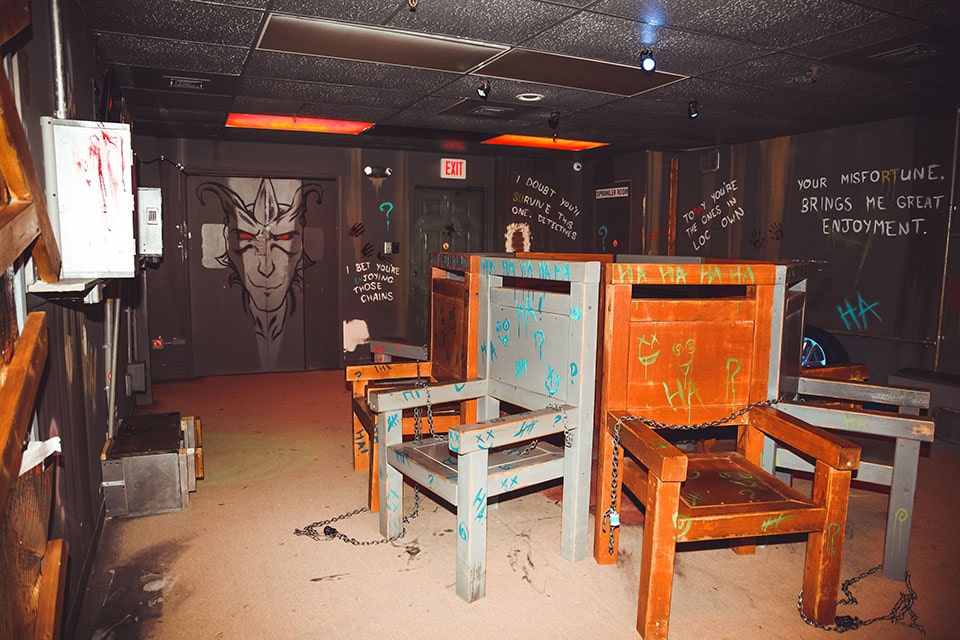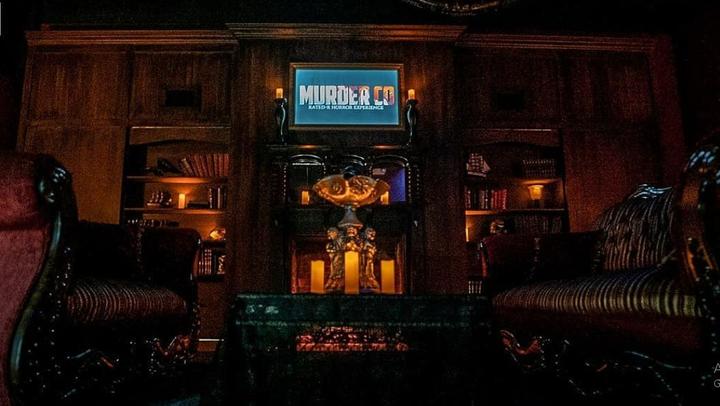Best Escape Room Experience-- Exciting Games and Puzzles for Teams
Best Escape Room Experience-- Exciting Games and Puzzles for Teams
Blog Article
Team Approaches: Just How to Team up Successfully in a Getaway Space
Groups must actively pay attention to each member's understandings, assign roles that straighten with individual staminas, and preserve routine check-ins to guarantee emphasis and protect against redundancy. By cultivating an atmosphere that values cohesion and adaptability, groups can considerably increase their efficiency and success prices.
Establish Clear Interaction

To assist in clear communication, it is necessary to mark a central factor of call for details dissemination. Brief, focused updates from each team participant can keep the group informed without overwhelming them with info.

Designate Duties Purposefully
While clear communication establishes the foundation for reliable teamwork, assigning roles purposefully makes sure that each employee's staminas are made use of effectively. In a retreat space scenario, the time-sensitive and intricate nature of difficulties requires a well-organized method to job delegation. By recognizing and leveraging private expertises, teams can optimize their analytical abilities and boost overall efficiency.
Someone with a keen eye for information may excel in locating covert things, while a sensible thinker might be much better fit to addressing challenges. This role often requires solid organizational and social abilities.
2nd, guarantee that duties are adaptable and adaptable. As new challenges emerge, the team must be able to pivot, reapportioning jobs as required. This versatility aids keep energy and prevents bottlenecks that might happen as a result of inflexible role jobs.
Inevitably, a tactical strategy to duty job not only maximizes the staminas of each staff member yet additionally promotes a natural environment, driving the group towards a successful escape.
Utilize Diverse Skills
Identifying and utilizing the diverse skills within your group can significantly raise your efficiency in an escape room. Each employee brings distinct strengths to the table, and effectively leveraging these abilities can speed up analytical and boost overall efficiency. For instance, a team member with strong logical skills might succeed at deciphering intricate codes or patterns, while one more with keen empirical capabilities may promptly find covert hints that could forget.
Effective communication is crucial to making use of these varied abilities. Urge employee to articulate their insights and ideas quickly, guaranteeing that all possible solutions are taken into consideration. This comprehensive technique cultivates a dynamic environment where imagination and important thinking can prosper. Furthermore, designating tasks that straighten with each participant's toughness can prevent traffic jams and make sure that progress is constant.
Furthermore, variety in skills commonly translates to diversity in thinking designs, which is very useful in an escape space setup. While some challenges might require logical reasoning and accuracy, others might take advantage of imaginative and association of ideas. By acknowledging and leveraging this diversity, teams can resolve a wider variety of obstacles better, thus raising their possibilities of a successful getaway.
Manage Time Properly

First, assign check my source initial mins for a fast survey of the space. Identify noticeable problems and divide jobs based on employee' toughness, ensuring that nobody is idle. Establish internal time checkpoints to assess development regularly; for example, objective to have half the puzzles addressed by the mid-point of the game. This practice can assist maintain the team concentrated and prevent time from escaping unnoticed.
Additionally, avoid tunnel vision. If a problem is taking also long, turn staff member or carry on to another difficulty, returning later with fresh perspectives. Communication is paramount-- maintain every person upgraded on addressed puzzles and remaining jobs to prevent redundant efforts.
Finally, make use of any kind of hints or hints moderately however tactically - best escape room. Knowing when to ask for aid can conserve valuable time. By sticking to these time monitoring principles, teams can considerably enhance their opportunities of a successful and enjoyable escape area experience
Debrief and Reflect
Representation is an essential element of check group development and renovation in the context of retreat rooms. Once the challenge is finished, whether efficiently or otherwise, it is crucial for the team to engage in an organized debriefing session. This process allows team participants to evaluate their efficiency, identify staminas, and identify areas for renovation.
Start the debrief by discussing what worked out. Highlight details circumstances of reliable communication, problem-solving, and cooperation. Acknowledging these positive habits enhances them and encourages their repeating in future difficulties.
Talk about minutes of confusion, miscommunication, or inadequate approaches. Motivate an open and useful dialogue where team participants can share their viewpoints without fear of criticism.
Conclusion
In verdict, successful partnership in a retreat room is based upon clear interaction, critical duty jobs, the reliable application of diverse abilities, and skilled time management. By producing a natural basics and adaptive group environment, the probability of successfully solving challenges and achieving the purpose of leaving the area is dramatically improved.
Report this page